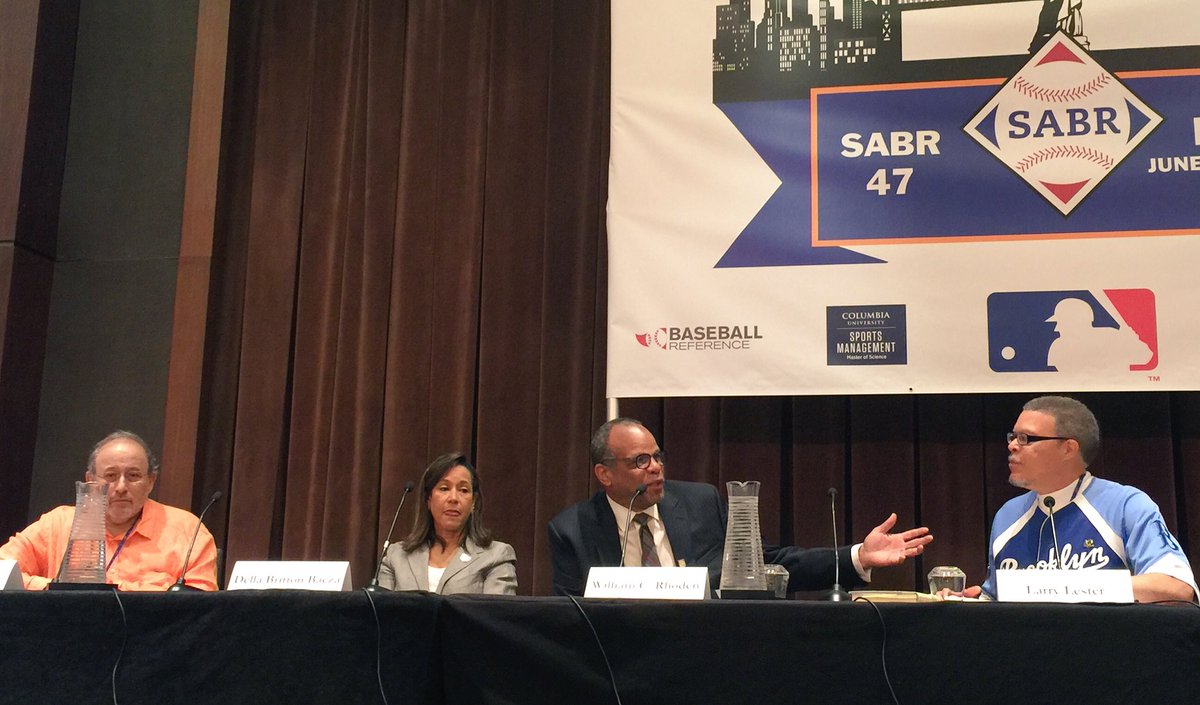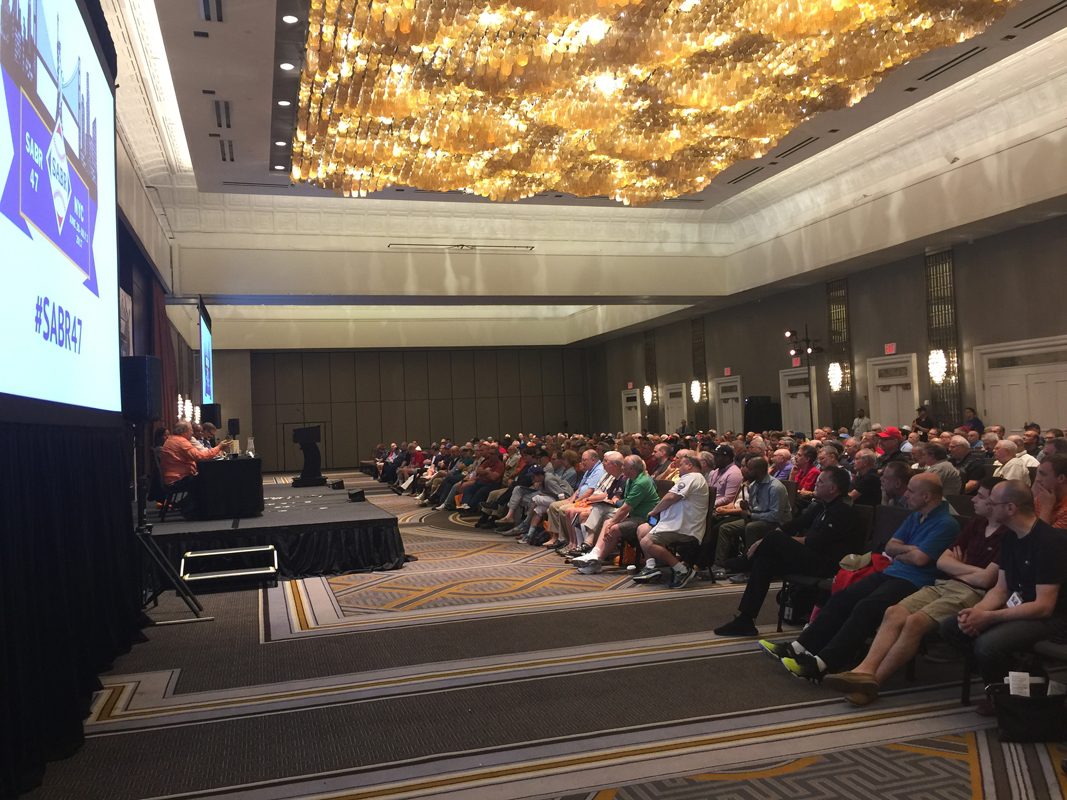SABR 47: Listen to highlights from the Jackie Robinson panel
At SABR 47 on Friday, June 30, 2017, we looked at the social and cultural impact of a baseball pioneer with the A Celebration of 70 Years: Jackie Robinson’s Journey panel at the Grand Hyatt New York.
The panel included author and sports writer William C. Rhoden, Branch Rickey biographer Lee Lowenfish, Jackie Robinson Foundation CEO Della Britton Baeza, and moderator Larry Lester, Negro Leagues historian and Bob Davids Award recipient.
Audio: Listen to highlights from the SABR 47 Jackie Robinson panel (MP3; 1:13:45)
 Here are some highlights:
Here are some highlights:
ON JACKIE ROBINSON’S PERSONAL INTEGRITY
- Rhoden: “No matter how you [look at] desegregation … just the courage [Jackie] had and what that does every single day as a human being but also as an African American. What he had to go through, what that generation of black folks had to go through, and are still going through now, how you meet that with determination, courage, love — still with love — has been phenomenal. … What I live my life by are the principles of Jackie Robinson: being courageous, being steadfast, not backing down, and living your life with all that adversity with love and understanding.”
- Baeza: “[Growing up], I remember whenever anyone of color came on television, we would race to the TV. Remember those days? … And when Jackie came on TV or the radio, my father would gather all of us and he would always say, ‘Jackie Robinson is royalty in this country.’ … And that always stuck with me. … What Jackie means to me is the ability to put before not only young African American children but all children, a man of unassailable character, a man of tremendous goodwill and humanitarianism from a very basic level. He is committed and always was committed — and I say ‘is’ because we talk about Jackie in the present tense mostly because Rachel talks about him in a present tense … she is not his widow, she is his wife. And he means to us the ability to have a symbol of damn near perfection, to the extent that any man is perfect. It’s about every aspect of his character, not just his courage. It was his integrity, his sense of dedication, his humility, his compassion.”
ON JACKIE’S INVOLVEMENT IN THE CIVIL RIGHTS MOVEMENT
- Baeza: “One of the things I love about Jackie is he proactively used his celebrity in ways … to help society and get involved with social issues. After baseball, he was the first African American to become an officer in a major Fortune 500 corporation. He became vice president for personnel relations at Chock Full ‘O Nuts. … He went on to become very involved in civic affairs and political affairs. He wrote his congressmen, he was a prolific letter writer. He knew he would get his phone calls answered, so he used [his celebrity], but he used it to help others. … He co-founded Freedom National Bank, because he knew blacks were having trouble getting [housing] loans from big banks. So he said, ‘Why don’t we start our own?’”
ON HOW BLACK ATHLETES WERE PERCEIVED BEFORE 1947
- Rhoden: “My father loved Joe Louis … but back then, and even now, no matter how great you were, if you were a black person, no matter how smart you are, no matter how much athletic ability you had — the world said, ‘This is your place.’ … And Jackie Robinson symbolically got a crack at that. … All this stuff that American is built on is about people getting an opportunity. Jackie got an opportunity. That generation of black folks [before Jackie] did not have the opportunities.”
 ON WHAT JACKIE WOULD THINK OF THE LACK OF BLACK MANAGERS AND GMs IN MLB TODAY
ON WHAT JACKIE WOULD THINK OF THE LACK OF BLACK MANAGERS AND GMs IN MLB TODAY
- Rhoden: “We know how he felt because he expressed it [in 1972]. We get so hung up in the past that we forget what we need to do — what do you do to change it? If you believe in the Jackie Robinson spirit, it’s not enough just to talk about it. In 2017, when you see things are wrong, what do you do to change them? … When you see there is one black manager or two Hispanics in the front office or whatever, what are you going to do as an individual to change it? If you don’t do that, then this is just an exercise. … But if you really believe in the spirit of Jackie Robinson to address what’s wrong, then you address what’s wrong with the power you’ve got. We know what he would say, but what will you DO?”
- Lester: “In 1975, Major League Baseball hired Frank Robinson as the first African American manager. This is [six] years after we put a man on the moon. And you may remember Neil Armstrong’s famous words … [so] we had the brains and technology to put a man on the moon, but we lacked the courage and conviction to take that one small leap to put a minority into our workplace. And that’s why we have such slow progression in our country.”
For more coverage of SABR 47, visit SABR.org/convention.
Originally published: July 6, 2017. Last Updated: July 27, 2020.


